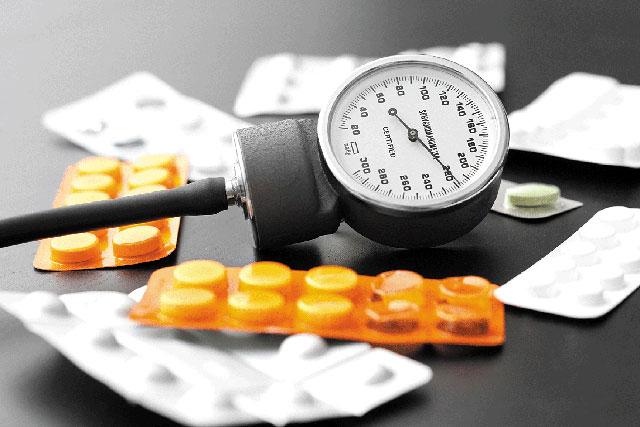You are here
Treating modestly high blood pressure may not boost survival odds
By Reuters - Nov 18,2017 - Last updated at Nov 18,2017

AFP photo
Below a certain starting threshold, using medication to reduce blood pressure in otherwise healthy people does not provide a clear survival benefit for most, a research review suggests.
Researchers examined data from 74 previously published clinical trials that randomly selected a total of more than 306,000 people to take blood pressure drugs or placebo.
Treatment to lower blood pressure only appeared to help prevent heart disease and boost survival odds for people who started out with systolic blood pressure above 140 mmHg.
The exception was people with heart disease who took medication to reduce blood pressure below 140 mmHg, who did have a lower risk of cardiovascular events like heart attacks or strokes, the researchers report online November 13 in JAMA Internal Medicine.
“Our results support a very simple strategy where everyone with a blood pressure above 140 mmHg should receive treatment, whereas most people below that level will have no further benefit from additional medications,” said study co-author Dr Mattias Brunstrom of Umea University in Sweden.
“Patients with previous heart disease may benefit from lower blood pressure goals, and an individual goal should be established together with the patient´s physician,” Brunstrom said by e-mail.
Setting the right goal for blood pressure has been a matter of intense debate in the medical community in recent years because research to date has offered a mixed picture of which patients may benefit from treatment, Brunstrom added.
Complicating matters, many patients with dangerously high blood pressure do not take drugs to treat it or commit to lifestyle changes that could achieve the same goal like improving their diet and exercise habits.
New recommendations announced this week at the American Heart Association conference in Anaheim, California, set a systolic target of 130 mmHg as a goal for lowering high blood pressure. For decades, the goal had been 140 mmHg in the US, and this is still the target in Europe. In Canada and Australia, however, the goal is 120 mmHg.
“There is an ongoing controversy about setting strict guidelines about blood pressure levels and in which setting it is safe or justified to treat elevated blood pressure,” said Dr Costantino Iadecola, director of the Feil Family Brain and Mind Research Institute at Weill Cornell Medicine in New York.
The results of the current study suggest that the right blood pressure goal may not be one size fits all, Iadecola said.
“The message here is that there is no universal number good for everyone,” added Iadecola, who was not involved in the study.
When people had blood pressure of at least 160 mmHg, medication to reduce it was associated with a 7 per cent lower risk of death across all of the studies in the analysis, as well as 22 per cent lower odds of events like heart attacks and strokes.
Between 140 mmHg and 159 mmHg, the reduction in mortality risk was similar, but there was a smaller 12 per cent decrease in the chances of cardiovascular events like heart attacks or strokes.
Healthy people didn’t appear to benefit from medication if they already had blood pressure below 140 mmHg.
But with a history of heart disease and average blood pressure of 138 mmHg, medication was associated with a 10 per cent lower risk of events like heart attacks and strokes. Medication did not appear to influence survival odds for these people, however.
Because the study only examined lowering blood pressure with medication, it is not clear if the results would be the same for other strategies such as changes in diet and exercise habits.
“We have no reason to think it should be any different with lifestyle modifications, but the scientific evidence supporting that lifestyle modifications cause less heart disease and stroke is weaker,” Brunstrom said.
Related Articles
People who monitor their own blood pressure at home may get better results if they also have extra support like counselling and lifestyle co
People whose blood pressure varies widely from day to day may be more likely to develop dementia than adults who have fairly steady blood pr
Poor oral health makes it harder for people with hypertension to manage their blood pressure, a new study suggests. Among people



















